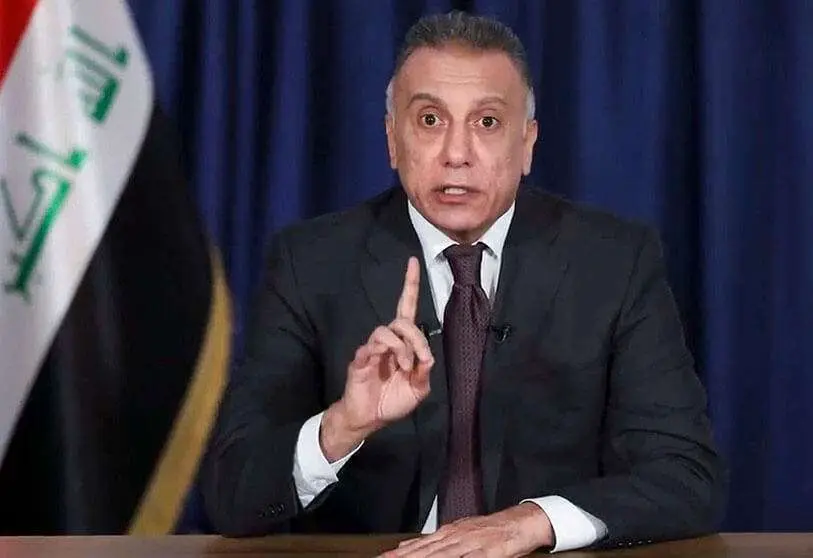Competition for sovereignty in Iraq

On April 9, 2020, Mustafa al-Khademi was appointed prime minister designate, after Adnan al-Zurfi resigned from his campaign to form a government, due to pressure from pro-Iranian factions. Al-Khademi has one month to form a government, which must be approved by the Iraqi parliament, that is, until May 9. After almost half a year without a government, these days will be critical in facing a series of crises and avoiding falling even deeper. In particular, Iraq has been in the throes of a serious economic crisis for months now, which is being aggravated by the fall in oil prices, which is reducing state revenue.
The deep political fragmentation, the protests by numerous social sectors and the new crisis of COVID-19 further aggravate this situation. Although al-Khademi initially appeared to receive support from pro-Iran factions and the tacit consent of Tehran, it spoke out at the end of April admitting that it is having great difficulty forming a government, as pro-Iran groups have stopped supporting it and are pressuring to give key ministries to its parties, such as the Ministry of Defence, Interior, Finance and Foreign Affairs.
Another major challenge the new prime minister is likely to face will be the high tension between the United States and Iran, which resurfaced recently after the attacks on the US military base at Camp Taji on March 11, following a few months of deceptive calm. The growing insecurity and, perhaps, the COVID-19 crisis, have led to a regrouping of US troops in large, better-protected bases in Iraq, thus deserting as many as six bases in recent weeks.
The future of the US presence in the country is a point of friction that will not go unnoticed, following the successful vote in January 2020 by the Iraqi parliament, which called for the expulsion of US troops. For this reason, Secretary of State Mike Pompeo announced that Washington would negotiate this point with Baghdad in June 2020. In any case, given the recent deployment of new Patriot missile batteries and C-RAM systems, it seems that the US does not plan to leave the country in the short term.
Considering Iraq's political reality, with non-state actors competing for the monopoly of power, it is worth noting that the Popular Mobilization Forces (PMF) are crumbling after the death of Soleimani and al-Muhandis, the former leader of these militias. The newly elected Abu Fadak does not enjoy the support of many factions within the PMF, and is even rejected by some members of Kataib Hezbollah, a militia of which he is a member. Powerful militias loyal to Ali al-Sistani have rejected the legitimacy of Abu Fadak and, at the end of April, four militias loyal to Sistani broke ranks with the PMF and announced their operations and administration would henceforth be under the direction of the Prime Minister. This is an exceptional opportunity to break Tehran's control over Iraq: the more militias decide to leave the MFA and integrate into the official state structure, the more the pro-Iranian factions will be exposed so that they will lose all vestiges of legitimacy in the eyes of Iraqi citizens themselves.
At the end of March, Spain ordered the withdrawal of 200 of the 523 troops, following the line of other allies of the International Coalition against Daesh (parties to Operation Inherent Resolve) and their NATO allies deployed in Iraq. In particular, those assigned to training tasks, after the suspension of activity due to COVID-19 and the arrival of Ramadan. In any case, the Ministry of Defence will keep other capabilities operating, such as the helicopter unit of the Army Airmobile Forc at Camp Taji, and announced temporary withdrawal: "once normality returns, the Spanish troops will return".
Albert Vidal Ribé. International Relations at the University of Navarra, researcher in Global Affairs & Strategic Studies and collaborator of the think-tank Article 30

